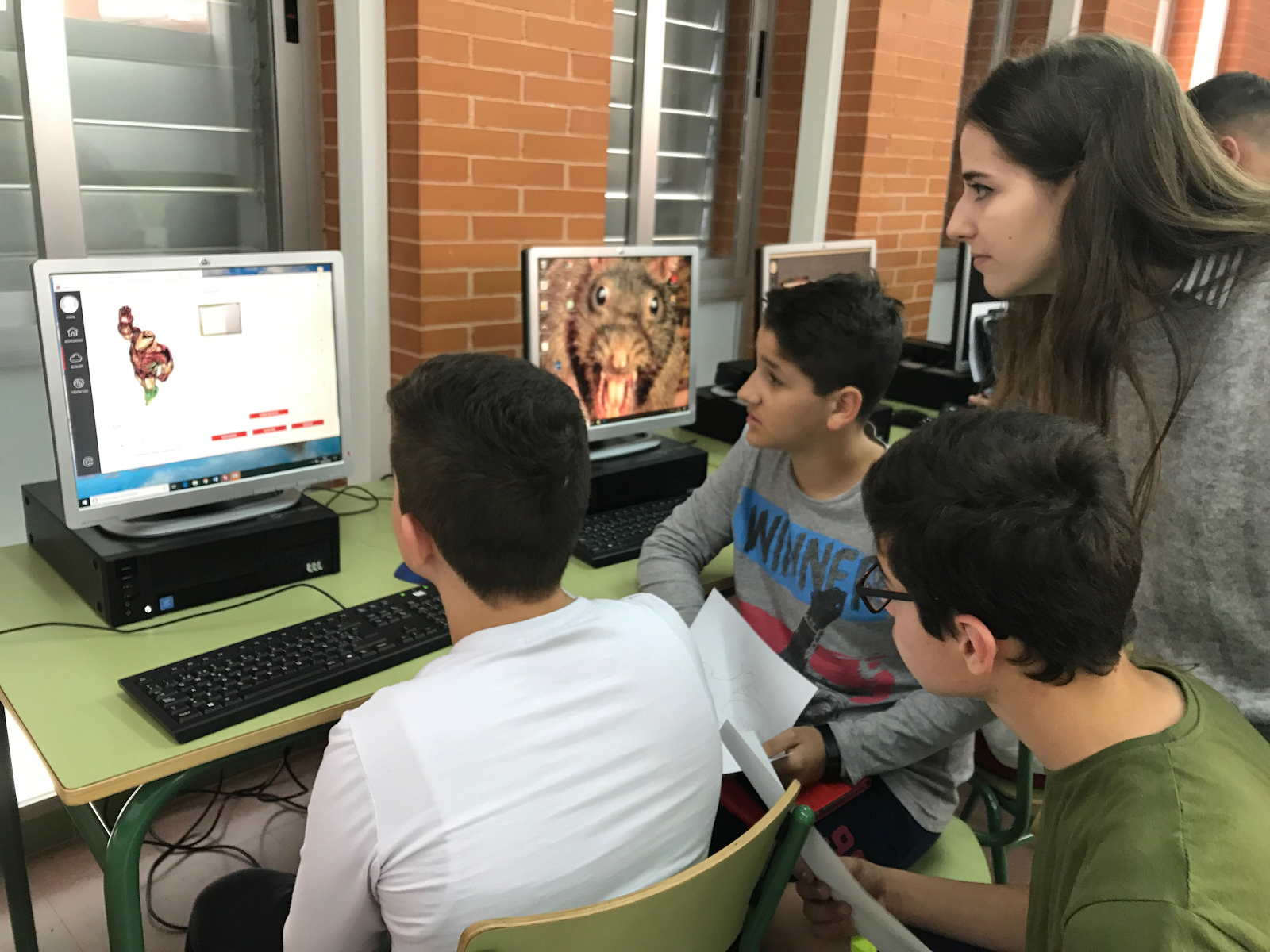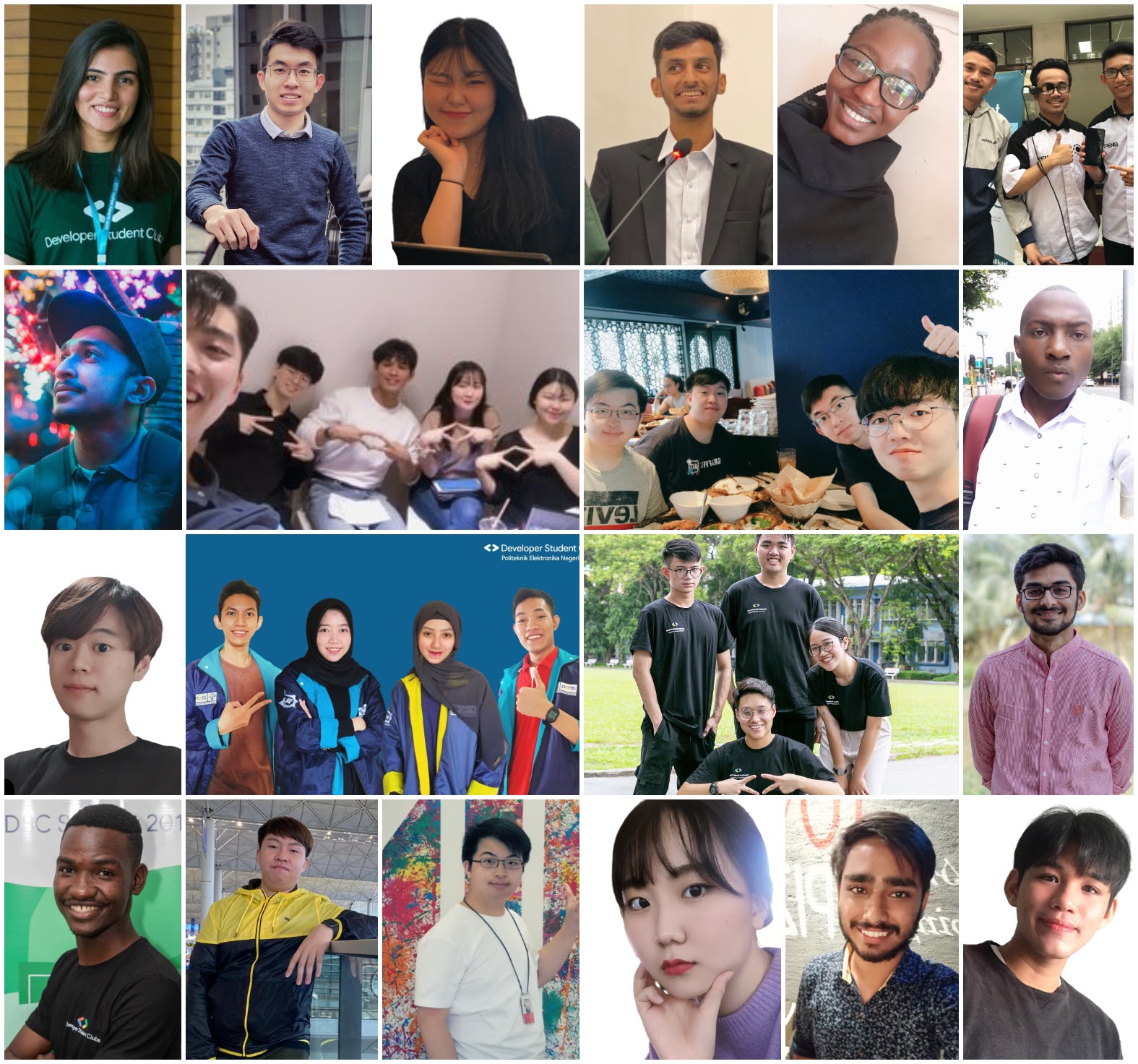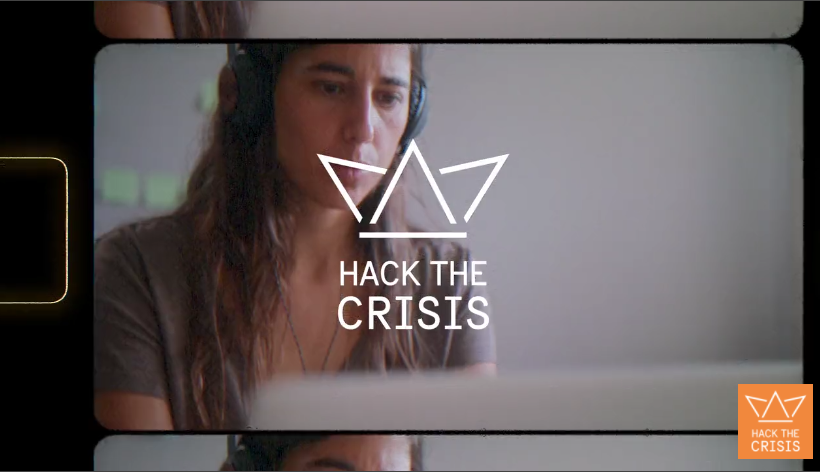Posted by Erica Hanson, Global Program Manager, Google Developer Student Clubs

(Irene (left) and her DSC team from the Polytechnic University of Cartagena (photo prior to COVID-19)
Irene Ruiz Pozo is a former Google Developer Student Club (DSC) Lead at the Polytechnic University of Cartagena in Murcia, Spain. As one of the founding members, Irene has seen the club grow from just a few student developers at her university to hosting multiple learning events across Spain. Recently, we spoke with Irene to understand more about the unique ways in which her team helped local university students learn more about Google technologies.
Real world ML and AR learning opportunities
Irene mentioned two fascinating projects that she had the chance to work on through her DSC at the Polytechnic University of Cartagena. The first was a learning lab that helped students understand how to use 360º cameras and 3D scanners for machine learning.

(A DSC member giving a demo of a 360º camera to students at the National Museum of Underwater Archeology in Cartagena)
The second was a partnership with the National Museum of Underwater Archeology, where Irene and her team created an augmented reality game that let students explore a digital rendition of the museum’s exhibitions.

(An image from the augmented reality game created for the National Museum of Underwater Archeology)
In the above AR experience created by Irene’s team, users can create their own character and move throughout the museum and explore different virtual renditions of exhibits in a video game-like setting.
Hash Code competition and experiencing the Google work culture
One particularly memorable experience for Irene and her DSC was participating in Google’s annual programming competition, Hash Code. As Irene explained, the event allowed developers to share their skills and connect in small teams of two to four programmers. They would then come together to tackle engineering problems like how to best design the layout of a Google data center, create the perfect video streaming experience on YouTube, or establish the best practices for compiling code at Google scale.

(Students working on the Hash Code competition (photo taken prior to COVID-19)
To Irene, the experience felt like a live look at being a software engineer at Google. The event taught her and her DSC team that while programming skills are important, communication and collaboration skills are what really help solve problems. For Irene, the experience truly bridged the gap between theory and practice.
Expanding knowledge with a podcast for student developers

(Irene’s team working with other student developers (photo taken before COVID-19)
After the event, Irene felt that if a true mentorship network was established among other DSCs in Europe, students would feel more comfortable partnering with one another to talk about common problems they faced. Inspired, she began to build out her mentorship program which included a podcast where student developers could collaborate on projects together.
The podcast, which just released its second episode, also highlights upcoming opportunities for students. In the most recent episode, Irene and friends dive into how to apply for Google Summer of Code Scholarships and talk about other upcoming open source project opportunities. Organizing these types of learning experiences for the community was one of the most fulfilling parts of working as a DSC Lead, according to Irene. She explained that the podcast has been an exciting space that allows her and other students to get more experience presenting ideas to an audience. Through this podcast, Irene has already seen many new DSC members eager to join the conversation and collaborate on new ideas.
As Irene now looks out on her future, she is excited for all the learning and career development that awaits her from the entire Google Developer community. Having graduated from university, Irene is now a Google Developer Groups (GDG) Lead - a program similar to DSC, but created for the professional developer community. In this role, she is excited to learn new skills and make professional connections that will help her start her career.
Are you also a student with a passion for code? Then join a local Google Developer Student Club near you, here.

 Posted by JP Loughran, Google Developers
Posted by JP Loughran, Google Developers 


 Posted by Erica Hanson, Global Program Lead, Developer Student Clubs
Posted by Erica Hanson, Global Program Lead, Developer Student Clubs
